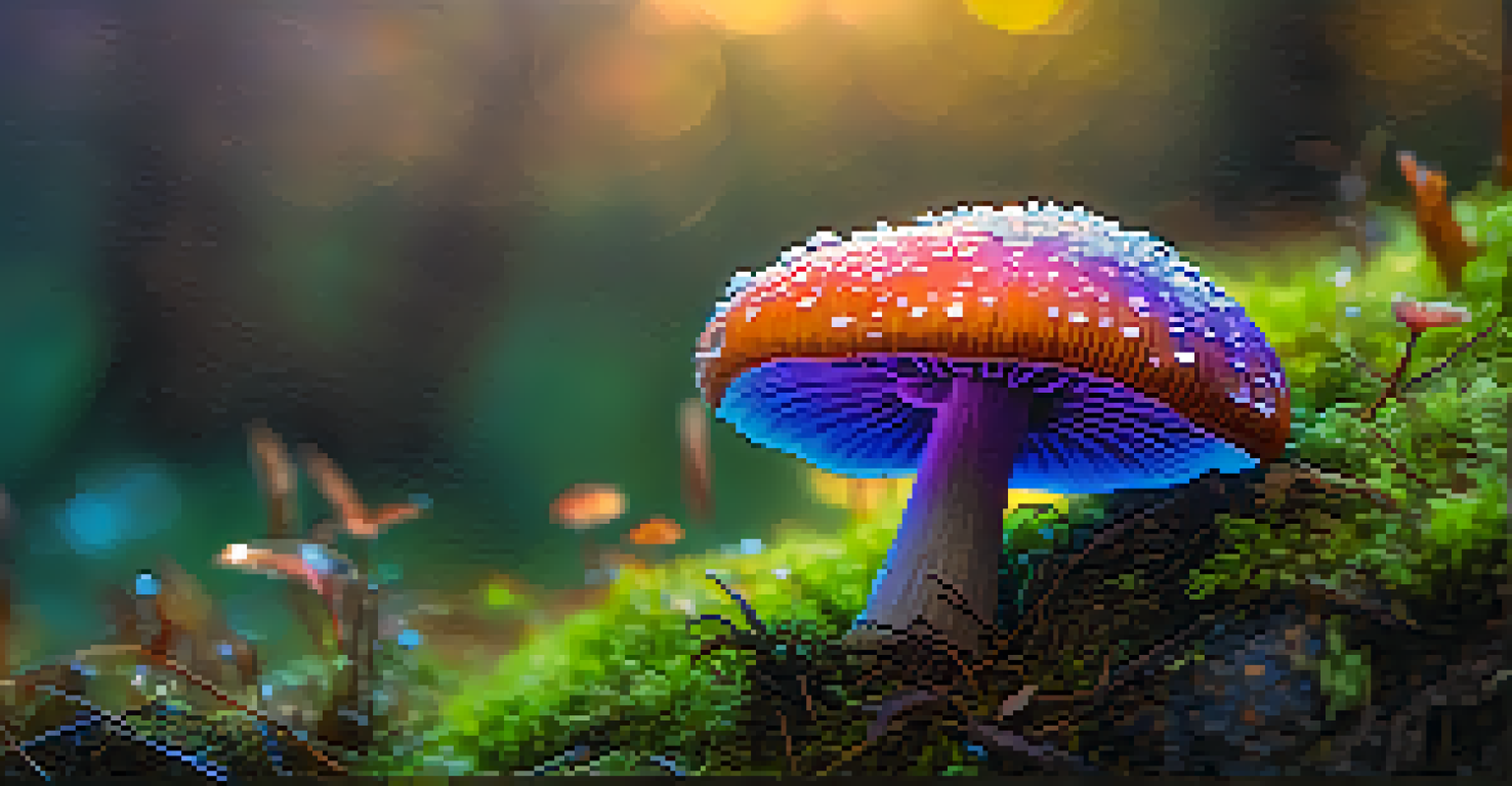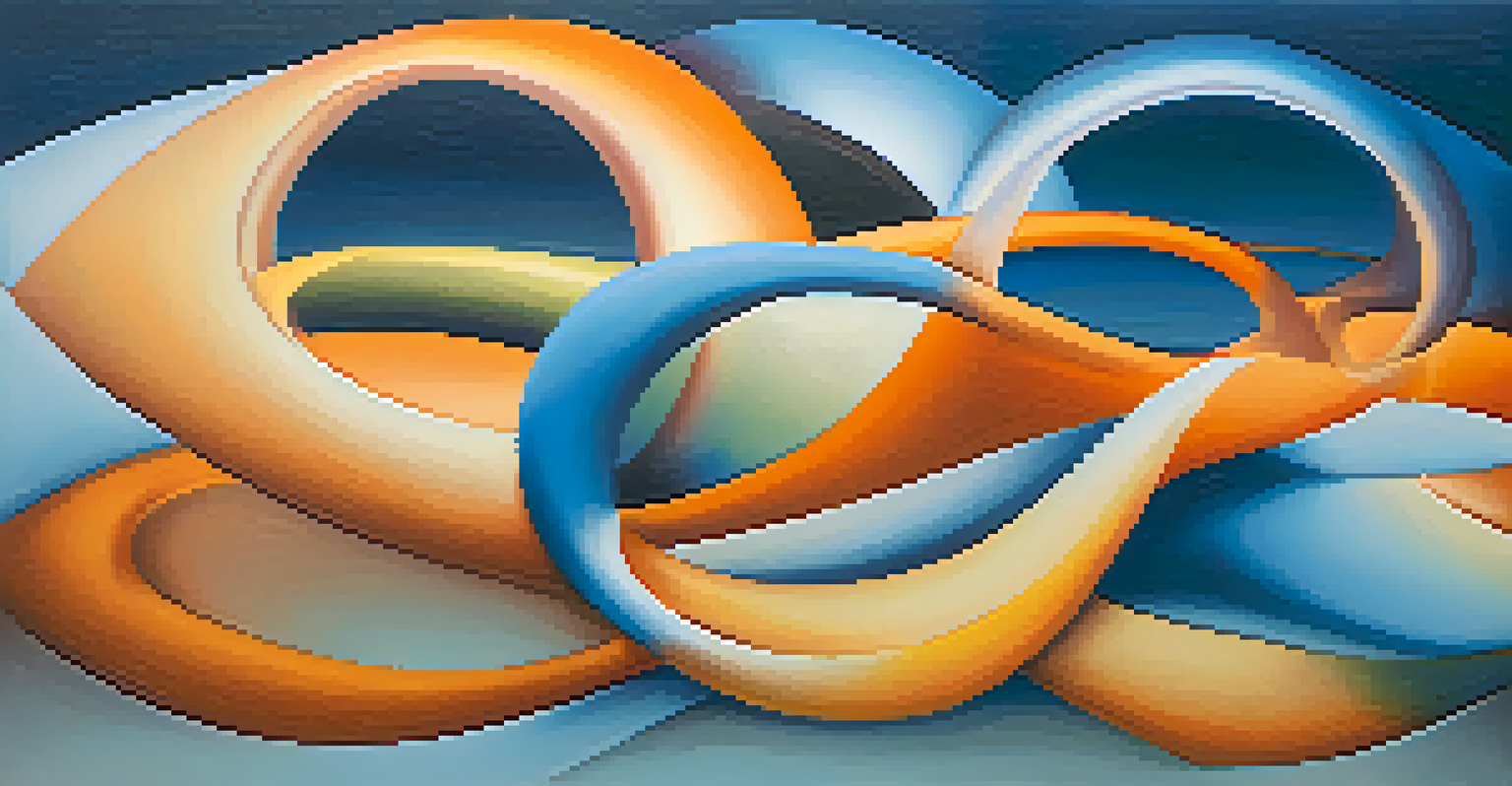Entheogens and Compassion: A Journey into Shared Humanity

Understanding Entheogens: A Brief Overview
Entheogens are substances that have been used for centuries in various cultures to enhance spiritual experiences. These natural compounds, such as psilocybin mushrooms or ayahuasca, often lead to altered states of consciousness. They have been utilized in rituals and healing practices, allowing individuals to connect with something greater than themselves.
The mind is everything. What you think you become.
The term 'entheogen' itself means 'generating the divine within,' highlighting the transformative potential these substances hold. Often misunderstood, entheogens can actually facilitate deep introspection and a sense of unity with others. This shared experience can lead to profound insights about one's own life and the lives of those around them.
As we delve deeper into the relationship between entheogens and compassion, it's essential to recognize the historical and cultural contexts in which these substances have thrived. Their role in promoting healing and understanding among communities underscores their significance in human experience.
The Science of Entheogens and Compassion
Research has shown that entheogens can induce feelings of empathy and compassion, altering brain activity in ways that foster connection with others. Studies indicate that these substances can enhance emotional sensitivity, allowing users to better understand and relate to the experiences of those around them. This increased empathy is particularly evident in social settings or during group ceremonies.

One fascinating aspect is how entheogens can help break down the barriers of individualism that often separate us. When users report feelings of oneness during their experiences, they often describe a deep sense of compassion towards all living beings. This can lead to a shift in perspective, where the pain and struggles of others feel more intimately connected to one's own.
Entheogens Enhance Compassion
Research shows that entheogens can foster empathy and a sense of connection with others, leading to transformative experiences.
Moreover, the neurochemical changes induced by these substances, such as the release of serotonin and oxytocin, can enhance feelings of trust and bonding. This scientific foundation provides a compelling argument for the compassionate effects of entheogens, suggesting that they may play a role in healing both individual and collective wounds.
Personal Experiences: A Window into Shared Humanity
Many individuals who have engaged with entheogens report transformative experiences that resonate with themes of compassion and interconnectedness. For instance, a person might embark on a journey with psilocybin and emerge with an enhanced understanding of their own suffering, which in turn fosters compassion for others. Such experiences often lead to lasting changes in behavior and perspective.
We are not human beings having a spiritual experience. We are spiritual beings having a human experience.
These personal stories highlight a crucial aspect of our shared humanity: the ability to connect deeply with others’ pain and joy. Participants frequently describe instances where they felt an overwhelming sense of love and understanding for everyone present. This shared experience can create a powerful bond among individuals, reinforcing the idea that we are all part of the same human tapestry.
By sharing these narratives, we can see how entheogens serve as catalysts for compassion, nurturing the human connection that is often neglected in our fast-paced world. Each story becomes a testament to the potential for healing and unity, reminding us of our shared struggles and triumphs.
Cultural Perspectives on Entheogens and Compassion
Across various cultures, entheogens have been revered as sacred tools for cultivating compassion and understanding. Indigenous communities, for example, have long recognized the value of these substances in fostering a deeper connection to nature and each other. Their rituals often emphasize collective healing and the importance of community, embodying the spirit of shared humanity.
In contemporary settings, there is a growing interest in re-integrating these practices into modern life. As more people seek to understand the role of entheogens in promoting empathy, we see a shift towards creating spaces that honor these traditions. This blending of ancient wisdom with modern insights can create a richer understanding of compassion in our lives.
Cultural Reverence for Healing
Various cultures view entheogens as sacred tools that promote compassion and understanding within communities.
By examining diverse cultural practices, we can gain valuable insights into how entheogens have historically served as bridges for connection. These perspectives are not only enlightening but also essential in shaping our approach to compassion in a globally interconnected world.
Challenges and Misconceptions Surrounding Entheogens
Despite their potential benefits, entheogens often face stigma and misunderstanding. Many people associate these substances solely with recreational use, neglecting their historical and therapeutic significance. This narrow view can lead to missed opportunities for healing and personal growth, as well as the perpetuation of harmful stereotypes.
Education plays a crucial role in dispelling these misconceptions. By sharing research and personal stories about the compassionate effects of entheogens, we can foster a more nuanced understanding. This is particularly important as society grapples with issues like mental health and emotional well-being, where entheogens may offer alternative pathways for healing.
Additionally, addressing the challenges of regulation and safety is paramount in ensuring that entheogens can be used responsibly. By promoting informed usage and respectful practices, we can mitigate the risks while highlighting the potential for fostering compassion and connection.
The Role of Entheogens in Modern Mental Health Treatment
As the field of mental health continues to evolve, entheogens are gaining attention for their therapeutic potential. Research suggests that substances like MDMA and psilocybin can significantly reduce symptoms of anxiety, depression, and PTSD, often leading to breakthroughs in treatment. This is particularly relevant in cases where traditional therapies may fall short.
The compassionate experiences reported by users can enhance the therapeutic process, allowing individuals to confront deep-seated emotions in a supportive environment. By creating a space where empathy and understanding flourish, therapists can facilitate healing that extends beyond the individual to their relationships and communities.
Challenges and Misunderstandings
Despite their benefits, entheogens face stigma and misconceptions that hinder their potential for healing and personal growth.
Moreover, the integration of entheogens into therapy can foster a sense of shared humanity, as clients often describe feeling connected to others. This shift can lead to improved relationships and a greater sense of belonging, essential factors in overall mental well-being.
Looking Ahead: A Future of Compassionate Connection
The journey into understanding entheogens and compassion is just beginning, with research and conversations expanding rapidly. As society becomes more open to exploring these substances, we have an opportunity to reshape our approach to compassion and healing. The potential for entheogens to bridge divides and foster empathy is immense, especially in a world that often feels fragmented.
By embracing the insights gained from both science and personal experiences, we can cultivate a culture that values compassion as a fundamental aspect of human connection. This requires not only education and awareness but also a willingness to engage with our own vulnerabilities and those of others.

Ultimately, the journey with entheogens can lead us to a deeper understanding of our shared humanity. As we navigate this path together, we may find that compassion is not just an ideal to aspire to, but a lived reality that connects us all.